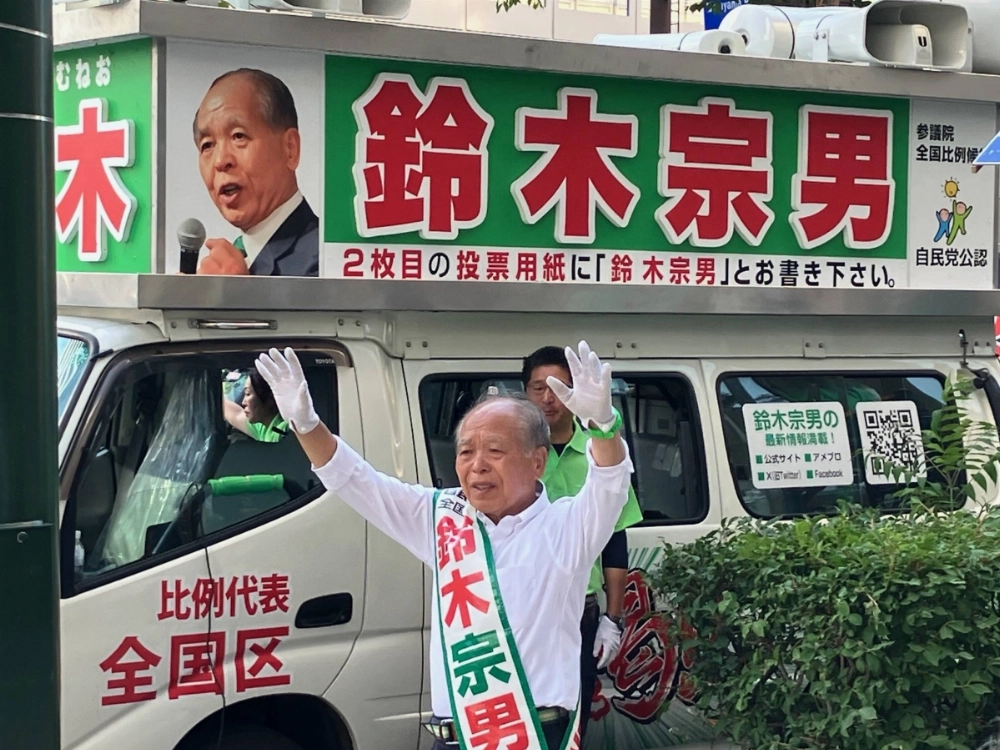In an Upper House election where many candidates and parties are striving to win over voters in the major cities, 77-year-old Hokkaido native Muneo Suzuki, running as a Liberal Democratic Party proportional candidate, says his campaign strategy is decidedly different.
“I traveled to Yonaguni, in Okinawa, the westernmost part of Japan. The suffering, sadness and hardship of the remote islands, as well as the harshness of living on the border of Japan requires political action,” Suzuki told a crowd in Sapporo last Saturday.
On July 3, the kickoff day for the Upper House election, Suzuki cheered other LDP candidates in Sapporo, flew to Nosappu Cape adjacent to the Northern Territories — the four islands of Kunashiri, Etorofu, Habomai, and Shikotan off the coast of Hokkaido that Russia seized from Japan at the end of World War II — and flew down to Okinawa Prefecture.

















With your current subscription plan you can comment on stories. However, before writing your first comment, please create a display name in the Profile section of your subscriber account page.